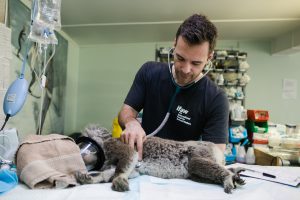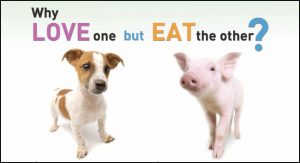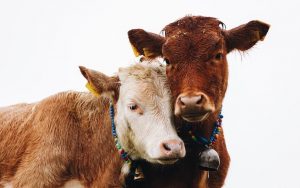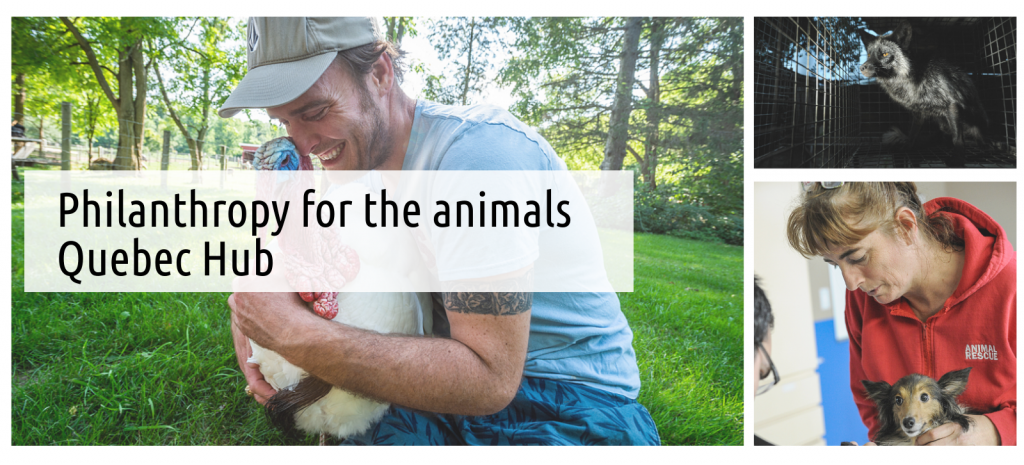The editorial “The many entanglements of philanthropy and animal welfare” introduces the January Special Edition: Philanthropy for the Animals.
As researchers and practitioners in the Canadian philanthropic sector, it’s hard to imagine a time before the COVID-19 pandemic. But in the six months that preceded March 2020, philanthropic organizations—big and small, formal and informal—were focused on a very different crisis: the wildfires raging across Australia. And while the fires certainly resulted in human suffering and the destruction of homes and property, much of this attention—as well as the mobilization of individuals and organizations—centred on the devasting impact of these fires on the natural world, including the deaths of over 3 billion animals.

Photo by International Fund for Animal Welfare from Pexels
In response, major charities like the World Wildlife Fund Canada raised funds to distribute to groups providing emergency care for injured wildlife, as well as groups engaged in building post-fire recovery plans. Likewise, small ad-hoc groups like the Canadian Animal Rescue Craft Facebook Group organized campaigns to sew bat wraps, koala mittens, joey pouches, and blankets, and transport these goods to animal rehabilitation programs in Australia. And that’s not to mention the widespread efforts of individuals—some more “creative” than others—to move mass amounts of money in service of this cause. This collective effort underlined the diversity and creativity of the philanthropic sector, as well as its capacity for action on issues concerning the welfare of animals.
A few months later, the province of Ontario passed Bill 156: the Security from Trespass and Protecting Food Safety Act. According to this bill, any journalist or activist caught trespassing on a farm, in a slaughterhouse, or around a livestock transport vehicle to shine a light on animal cruelty could be fined up to $25,000. By making such actions illegal, Bill 156 furthered restrictions on charitable organizations engaging in the fight against factory farming, animal abuse, and the climate crisis. These developments are all the more egregious given the precarious and dangerous work environments of the vulnerable (and primarily racialized) workers who labour in these workplaces. These new restrictions were particularly egregious amidst the COVID-19 crisis, as factory farms—both slaughterhouses and fur farms—were hotbeds of the COVID-19 virus, leading to worker illness, and the mass euthanizing of animals. And yet, for some reason (or set of reasons)—perhaps, ideological, reputational, and/or legal—the philanthropic sector had very little to say on these issues.
I’m beginning this Special Edition with these two examples for a specific purpose: to highlight, in no uncertain terms, the extreme contradictions that exist at the core of philanthropic engagement with issues related to animal welfare. Of course, critical voices have long wrestled with philanthropy’s contradictory nature, asking, for example, where foundation assets come from, and how these accumulation processes contribute to the social, economic, and environmental injustices that philanthropic grantmaking seeks to combat (e.g., Gilmore, 2009; Saifer, 2021; Villaneuva, 2018). Reconciling these contradictions is at the centre of much ongoing debate within the sector.
What I would like to suggest here, however, is that the issue of animal welfare puts these contradictions front and centre, forcing us to reflect on and address our own behaviours—individually, organizationally, and societally—in ways that are both unsettling, and generative for work on other equity and justice issues. Because, while it is easy to give money to an organization that fights for environmental justice and declare “I am taking important steps to support this cause”, it is much harder to make a similar claim about animal welfare if you donate to the SPCA while eating a hamburger from McDonald’s.

Image by Vegan Australia
This Special Edition is PhiLab’s first effort to address the many complex entanglements of philanthropy and animal welfare. The range and scope of these contributions reflects the fact that the relationship between humans and nonhuman animals cuts across all aspects of our lives. Animals provide companionship and, for many, can take on the role of family member. Animals are used in research trials, in equal parts for lifesaving drugs as for unnecessary testing on shampoos, conditioners, and soaps. Animals occupy a fundamental place in how we think about food as it applies to our health: the health of our bodies, the health of our planet, the health of our cultures and communities, and the health of our ethical and moral selves.
Simply put, our social, moral, and physical selves are constructed through our relationship to non-human animals. Despite this, discussions around the linkages between philanthropy and animal welfare remain underexplored. And while the merit of supporting animal welfare causes should, in my opinion, stand on its own for moral reasons, this absence is additionally notable as animal welfare issues are deeply entangled with the social, economic, and environmental justice issues confronting so many contemporary philanthropic foundations.
 For example, philanthropic foundations focused on environmental issues can look to the devastating impact of factory farms and factory farming on climate change. The global industrial meat industry produces 32% of global methane emissions and 16.5% of total greenhouse gas emissions—rates that outpace all fossil fuel-based modes of transportation like cars and airplanes. Factory farms also pose a major threat to our water supply, both in quantity (i.e., water used to grow livestock feed) and quality (i.e., creation of huge amounts of animal waste that is not treated before entering waterways).
For example, philanthropic foundations focused on environmental issues can look to the devastating impact of factory farms and factory farming on climate change. The global industrial meat industry produces 32% of global methane emissions and 16.5% of total greenhouse gas emissions—rates that outpace all fossil fuel-based modes of transportation like cars and airplanes. Factory farms also pose a major threat to our water supply, both in quantity (i.e., water used to grow livestock feed) and quality (i.e., creation of huge amounts of animal waste that is not treated before entering waterways).
Likewise, philanthropists concerned with the health of our communities can set their sights on the inexpensive meat and dairy products that lead to chronic diseases. From processed meats and red meats (which the World Health Organization now classifies as carcinogenic and probably carcinogenic, respectively) to antibiotic-resistant bacteria (or superbugs) that proliferate among confined animals in factory farms, the capitalist imperative to produce as much animal-based food products for as cheap as possible has significant impact on human health. Likewise, slaughterhouse labour has been shown to have severe mental health repercussions for workers including PTSD [post-traumatic stress disorder] and PITS [perpetration-induced traumatic stress], and has been connected to an increase in crime rates, including higher incidents of domestic abuse, as swell as alcohol and drug abuse.
Importantly, because Canada is racially and economically segregated—both geographically and within the division of labour—these issues map onto existing inequalities. Factory farms are typically located where the cost of land and labour is least expensive. As a result, poor, racialized, and Indigenous communities are disproportionately exposed to pollution and animal waste produced by factory farms—part of a phenomenon called environmental racism—which can have severe impacts on the physical and mental health of residents in these communities. Finally, studies show that individuals from low-income communities and with lower education levels consume higher amounts of cheap red and processed meats in their diets, which is correlated to elevated risks of various cancers, as well as obesity, diabetes, and heart disease.
 Conversely, donors interested in improving mental health—particularly amidst the COVID-19 pandemic—should look no further than the wide array of animal rescues, animal shelters, and animal welfare education programs in Canada. Studies show that pet companionship can help remedy anxiety and depression, both in the bonds that are formed, as well as in their ability to push us to be more physically active.
Conversely, donors interested in improving mental health—particularly amidst the COVID-19 pandemic—should look no further than the wide array of animal rescues, animal shelters, and animal welfare education programs in Canada. Studies show that pet companionship can help remedy anxiety and depression, both in the bonds that are formed, as well as in their ability to push us to be more physically active.
All that being said, I want to clearly state, again, that philanthropy’s support for animal rights and welfare can, and should, be justified on its own ethical and political merits. Support for animal causes through animal fostering, eliminating animal products from your diet, donating to your local animal rescue, and boycotting products that test on animals, for example, should be motivated by an understanding of the moral and ethical dimensions of human and non-human animal relations. And through an understanding of how capitalist imperatives and modes of production have transformed these relations, replacing any semblance of an ethics of respect, stewardship, and tradition, with one of use and abuse and profit.
Introducing the Special Issue
In the leadup to the creation of this Special Edition, the PhiLab Quebec team had numerous conversations about the conceptual boundaries that we would place around the broad area of philanthropy and animal welfare. Were we talking about domesticated animals or wild animals? Animal agriculture and factory farming? In Canada or abroad? The relationship between climate change and animals? Or capitalism and animals? Scientific research and animals? Would we be talking about the treatment of animals within a framework that sees them as inherently “below” humans? Or a framework that sees animals as deserving rights—enshrined by law—that conceptualizes them as beings unto themselves and not solely for the use (and abuse) of humans? Would we be limiting our conversations to philanthropic foundations that work on these issues, or focus on grassroots networks of fundraising that powers organizations from your local humane society to radical animal rights groups that break laws in order to bring justice to non-human animals?
In the end, we decided to put together a Special Edition that explores as many of these areas as possible. The contributions focus on topics ranging from animal rescues and sanctuaries to vegan cosmetic companies and radical direct-action rights groups. The contributions come in a multiplicity of forms, including case studies, interviews, podcasts, literature reviews, and more traditional articles. The contributions draw on various frameworks and worldviews, in order to capture a variety of perspectives around this expansive, yet underexplored, area of thought.
We are very excited about this Special Edition, and the kinds of challenging conversations it will inspire.
Happy reading!
This article is part of the special edition of January 2022 : Philanthropy for the Animals. You can find more information here

